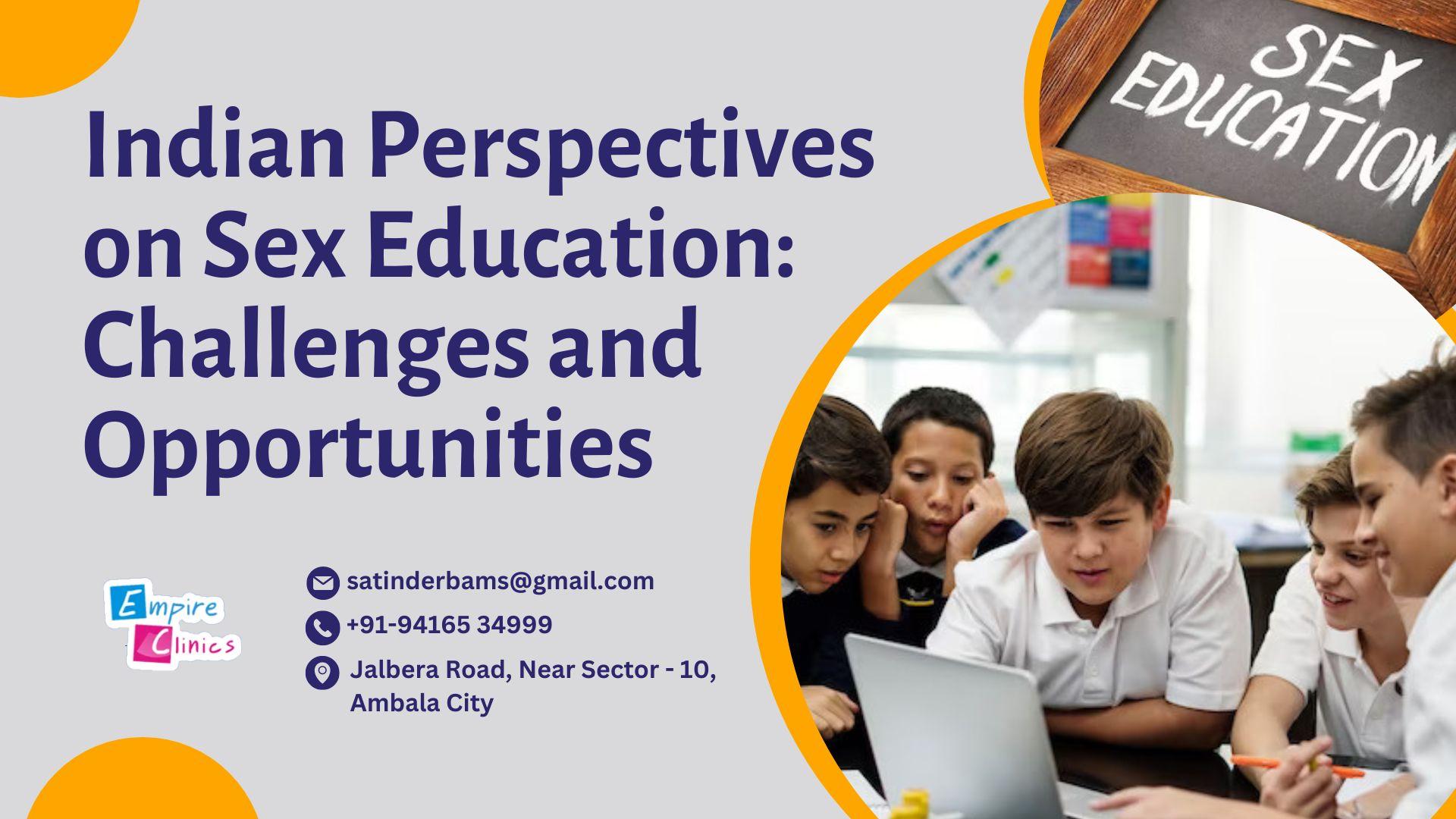Sex education is a topic of immense importance, as it equips individuals with the knowledge and skills necessary for healthy sexual development, relationships, and informed decision-making. In the Indian context, sex education faces unique challenges due to cultural, social, and religious factors. However, there are also opportunities to promote comprehensive and age-appropriate sex education that addresses the specific needs of Indian society. Let’s delve into the challenges and opportunities surrounding sexuality education in India.
Challenges:
1. Cultural Taboos: India has a diverse cultural fabric with varying attitudes towards sexuality. Conservative social norms and taboos surrounding discussions about sex and sexuality pose a significant challenge to implementing comprehensive sex education. These taboos often lead to silence, misinformation, and myths surrounding sexual health, which can have negative consequences for individuals.
2. Limited Curriculum: The existing education curriculum in India often lacks comprehensive sexuality education. Schools focus more on reproductive biology and overlook topics such as consent, healthy relationships, gender equality, and safe sexual practices. This limited curriculum fails to provide young people with a holistic understanding of sexual health and rights.
3. Misconceptions and Resistance: Sex education in India is often met with resistance from various stakeholders, including parents, religious leaders, and conservative groups. There is a prevalent belief that discussing sexuality with young people may lead to promiscuity or moral degradation. Overcoming these misconceptions and resistance is a significant challenge in promoting comprehensive sex education.
4. Gender Inequality: Gender inequality remains a pressing issue in India, and it directly affects the scope and quality of sex education. Discussions around gender roles, consent, and healthy relationships are often overlooked or downplayed. Addressing gender inequality within sex education is essential to foster an environment of equality and respect.
Opportunities:
1.Rising Awareness: With increasing urbanization, exposure to global influences, and access to the internet, awareness about sexual health is gradually increasing in India. There is a growing recognition of the need for comprehensive sex education to address the unique challenges faced by young people in the country.
2.Legal Framework: India has made strides in establishing a legal framework that supports comprehensive sex education. The National Education Policy 2020 recognizes the importance of age-appropriate sexuality education and advocates for its integration into the curriculum. This provides an opportunity for stakeholders to advocate for robust sexuality education programs.
3.Youth Engagement: The youth in India are becoming more vocal about their rights and demanding accurate and inclusive information about sexual health. This presents an opportunity to involve young people in shaping sex education policies and programs, ensuring they address their specific needs and concerns.
4.Community Engagement: Engaging parents, religious leaders, and community members in discussions about sexuality education can help dispel misconceptions and create a supportive environment. Encouraging dialogue and collaboration with these stakeholders is crucial in fostering acceptance and understanding.
5.Technological Advancements: Technology can be leveraged to overcome some of the barriers to sex education. Online platforms, mobile applications, and digital resources can provide access to accurate information and support for young people, especially in areas with limited resources or conservative attitudes.
To maximize the opportunities for sexuality education in India, several strategies can be employed. First and foremost, there is a need for policy-level reforms that prioritize comprehensive sex education and provide clear guidelines for its implementation. This should include training teachers to deliver age-appropriate and inclusive sex education, as well as engaging experts and professionals in curriculum development.
Additionally, public awareness campaigns can play a vital role in destigmatizing discussions around sex and sexuality. These campaigns can address misconceptions, highlight the importance of consent, promote gender equality, and emphasize the significance of informed decision-making in sexual relationships.
Lastly, collaborations between government agencies, educational institutions, civil society organizations, and healthcare providers are crucial in creating a comprehensive and sustainable approach to sex education. By pooling resources, expertise, and knowledge, these collaborations can develop culturally sensitive and evidence-based programs that address the specific needs of diverse communities in India.
In conclusion, sexuality education in India faces challenges due to cultural taboos, limited curriculum, resistance, and gender inequality. However, there are opportunities for change through rising awareness, legal frameworks, youth engagement, community involvement, and technological advancements. By addressing these challenges and capitalizing on the opportunities, India can strive towards a comprehensive sexuality education system that empowers individuals with the knowledge and skills necessary for healthy sexual lives and relationships.








